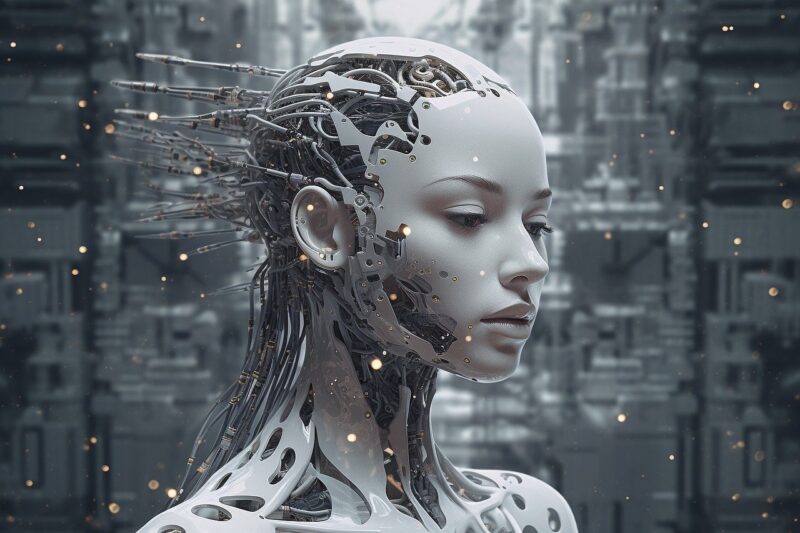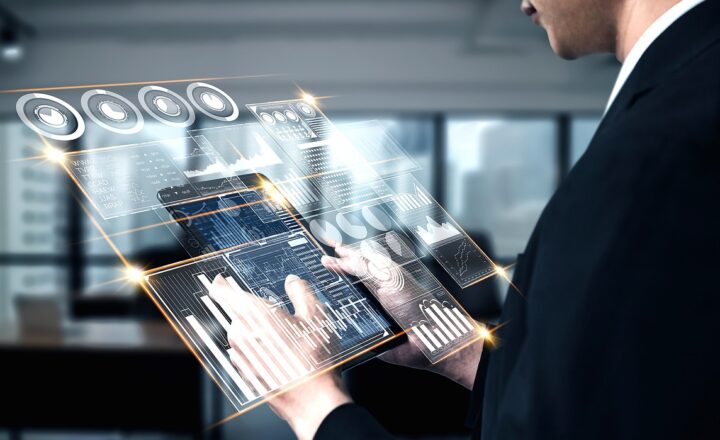The AI Innovations That Are Reshaping How We Work, Live, and Communicate Daily
November 17, 2024

Artificial Intelligence (AI) has become a cornerstone of modern life, transforming the ways we work, interact, and even entertain ourselves. With rapid advancements in machine learning, natural language processing (NLP), and automation, AI innovations are altering every sector, from healthcare and finance to travel and education. This article will explore how AI is reshaping our daily lives and the potential it holds for the future.
1. Understanding AI: What It Is and How It Works
Artificial Intelligence refers to the simulation of human intelligence processes by machines, particularly computer systems. These processes include learning (the acquisition of information and rules for using it), reasoning (using rules to reach approximate or definite conclusions), and self-correction.
AI systems can be classified into two main categories: narrow AI (designed to perform a narrow task, like facial recognition or internet searches) and general AI (a system that possesses the ability to understand, learn, and apply intelligence across a range of tasks).
2. AI in the Workplace: Enhancing Productivity and Collaboration
AI technologies are increasingly becoming trusty assistants in the workplace, helping with everything from scheduling meetings to managing projects.
- Automation of Routine Tasks: AI can automate repetitive tasks such as data entry, appointment scheduling, and even customer service inquiries. Tools like chatbots and virtual assistants (e.g., Google Assistant and Siri) reduce workplace monotony, allowing employees to focus on higher-value activities.
- Enhanced Data Analysis: AI excels in data analysis, offering insights that humans may overlook. For instance, businesses like Amazon utilize AI-driven analytics to customize customer experiences based on past purchases and search behaviors.
- Collaboration Tools: AI-powered tools such as Microsoft Teams and Slack integrate smart features like suggesting replies or scheduling meetings based on participants’ calendars, streamlining communication.
As these innovations continue to advance, the potential for AI in the workplace to foster creativity and productivity increases exponentially.
3. AI and Communication: Bridging Gaps Between Cultures
AI is also profoundly transforming communication. The ability to connect people across the globe in real-time is now more seamless than ever, thanks to advancements in AI.
- Real-Time Translation: Tools like Google Translate use AI algorithms to provide real-time translation services, enabling conversations between speakers of different languages without the need for professional translators. This technology is crucial for fostering global collaboration and understanding.
- Voice Recognition and Assistants: Natural Language Processing (NLP) integrates voice recognition features into various tools, making interactions smoother. Devices such as Amazon Echo and Google Home rely on AI to facilitate voice commands and improve user accessibility.
- Social Media Interaction: AI algorithms are prominently featured in social media platforms, analyzing user behavior and providing tailored advertisements, enhancing user engagement and brand interaction.
These innovations not only streamline communication but also help build bridges between cultures and ideologies, fostering a more connected world.
4. AI at Home: Transforming Daily Life
AI has increasingly infiltrated our homes, making everyday life more comfortable and efficient. Smart home devices powered by AI help automate various household tasks.
- Smart Appliances: From refrigerators that can suggest recipes based on their contents to robotic vacuum cleaners that navigate through your home, AI enhances home management. Devices like Nest can learn your heating preferences and adjust settings automatically for optimal comfort.
- Health Monitoring: Wearable AI devices like Fitbit track health metrics, providing users with insights into their wellness and fitness levels. This data can be invaluable for personal health management, alerting users to potential health issues.
- Security Systems: AI-driven security systems can recognize familiar faces, sending alerts when an unknown individual is detected, thus offering enhanced safety for families.
Overall, these smart technologies not only facilitate daily routines but also contribute to improved quality of life by saving time and enhancing safety.
5. The Future of AI: Opportunities and Challenges
While AI promises numerous benefits, it is essential to address the challenges and ethical considerations that come along with its advancements. Key areas of focus include:
- Job Displacement: Automation of jobs raises concerns regarding unemployment and the need for retraining workers. Finding a balance between technological advancement and workforce stability is crucial.
- Ethics and Privacy: Companies must navigate ethical dilemmas surrounding AI, particularly regarding data privacy and the use of personal information without consent. Stricter regulations may be necessary to govern AI usage effectively.
- Bias in AI Systems: AI systems can inherit biases present in their training data, leading to unfair treatment of certain groups. Continuous monitoring and diverse data sets will be crucial in mitigating bias in AI applications.
As we move forward, striking a balance between leveraging AI innovations and addressing these challenges will shape a future where AI benefits everyone.
Conclusion: Embracing the AI Revolution
The impact of AI on our daily lives is undeniable. As innovations continue to evolve, they will reshape how we work, live, and connect with each other. Embracing these changes will require an open mindset and a commitment to ethical practices to ensure that AI enhances human capabilities rather than replace them.
By proactively engaging in discussions about the implications of AI and adopting its technologies, we stand poised to navigate the future confidently, equipped with tools that enrich our lives and expand our potential.
Whether we are welcoming AI-driven communication tools or adapting to AI-based work environments, the journey ahead promises to be as exciting as it is transformative.








